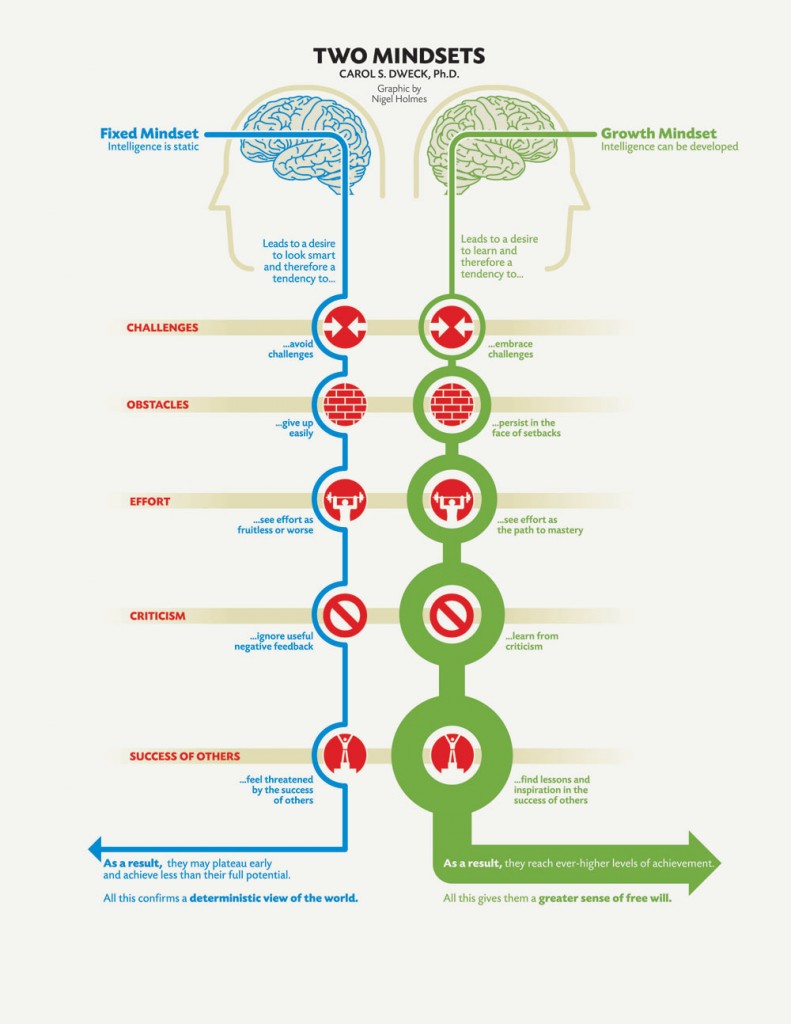Why Being Smart Isn’t Enough to Make You Successful

When you think about people who are successful, what’s the first thing that comes to mind? “Oh, he graduated magna cum laude in UP Diliman, kasi,” or “She got a scholarship for an MBA abroad, that’s why she’s on top.” It’s easy to think that success only happens to people with brains, which inevitably leaves the rest of us in the dust—sometimes. But new research from Stanford University would think otherwise. Stanford University psychology professor Carol Dweck has spent most of her career studying attitude and performance of individuals—both students and workers—and she found that attitude is a better predictor of your success than intelligence. In her findings, she realized that there are two core attitudes in people: a fixed mindset and a growth mindset.
Having a fixed mindset means that an individual believes that their basic qualities, like their intelligence or talent, are fixed traits and that it cannot be changed. They spend most of their time documenting their intelligence or talent instead of developing them, which in time will create problems and overwhelms them when faced with challenges . On the other hand, a growth mindset is the exact opposite. People with a growth mindset thrives on challenge and sees failure as an opportunity for growth and for stretching their abilities, even if they have a low IQ.
When you think about people who are successful, what’s the first thing that comes to mind? “Oh, he graduated magna cum laude in UP Diliman, kasi,” or “She got a scholarship for an MBA abroad, that’s why she’s on top.” It’s easy to think that success only happens to people with brains, which inevitably leaves the rest of us in the dust—sometimes. But new research from Stanford University would think otherwise. Stanford University psychology professor Carol Dweck has spent most of her career studying attitude and performance of individuals—both students and workers—and she found that attitude is a better predictor of your success than intelligence.
In her findings, she realized that there are two core attitudes in people: a fixed mindset and a growth mindset. Having a fixed mindset means that an individual believes that their basic qualities, like their intelligence or talent, are fixed traits and that it cannot be changed. They spend most of their time documenting their intelligence or talent instead of developing them, which in time will create problems and overwhelms them when faced with challenges . On the other hand, a growth mindset is the exact opposite. People with a growth mindset thrives on challenge and sees failure as an opportunity for growth and for stretching their abilities, even if they have a low IQ.

Having the ability, like being astronomically intelligent, inspires confidence and does bring success, no doubt about that. However, the deciding factor in life is how you handle setbacks and challenges, and how you’re going to incorporate grit into your system and persevere when you do fail. Regardless of which side of the chart you fall under, Dweck says you can still develop being growth-oriented with enough effort. Change is difficult, yes, but in order for us to succeed, we must make efforts to transform ourselves to become better.
What Travis Bradberry, co-author of Emotional Intelligence 2.0, suggest is to train yourself and your mindset to be more positive, to persevere and go that extra mile, to be relentlessly passionate with your skills and talents, to take action and not let fear and anxiety paralyze your capabilities, be flexible when adversity comes, to empower yourself, and lastly to keep track of your progress. Easy right? No, not really. But take it slow. After all, success is not a race. Here’s a TEDx Talk by psychologist Angela Lee Duckworth that’ll further explain the concept of measuring success with attitude and intelligence.




No comment available yet!